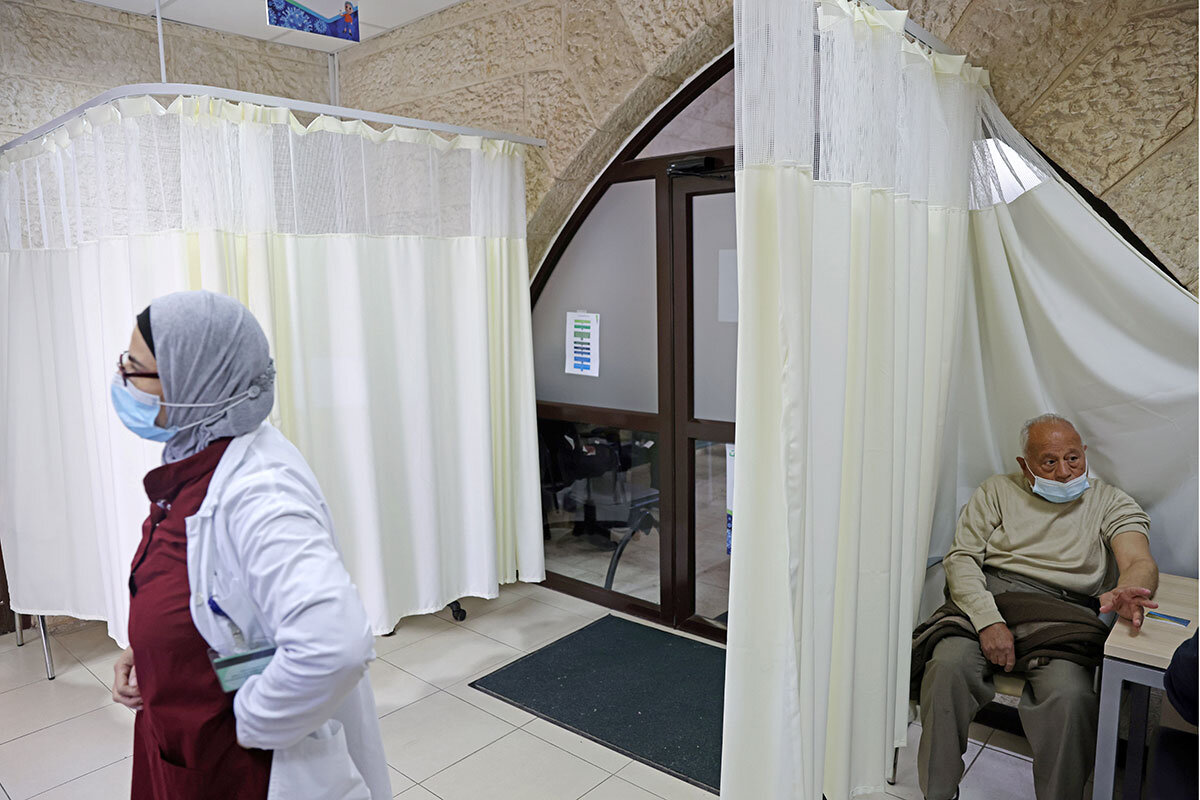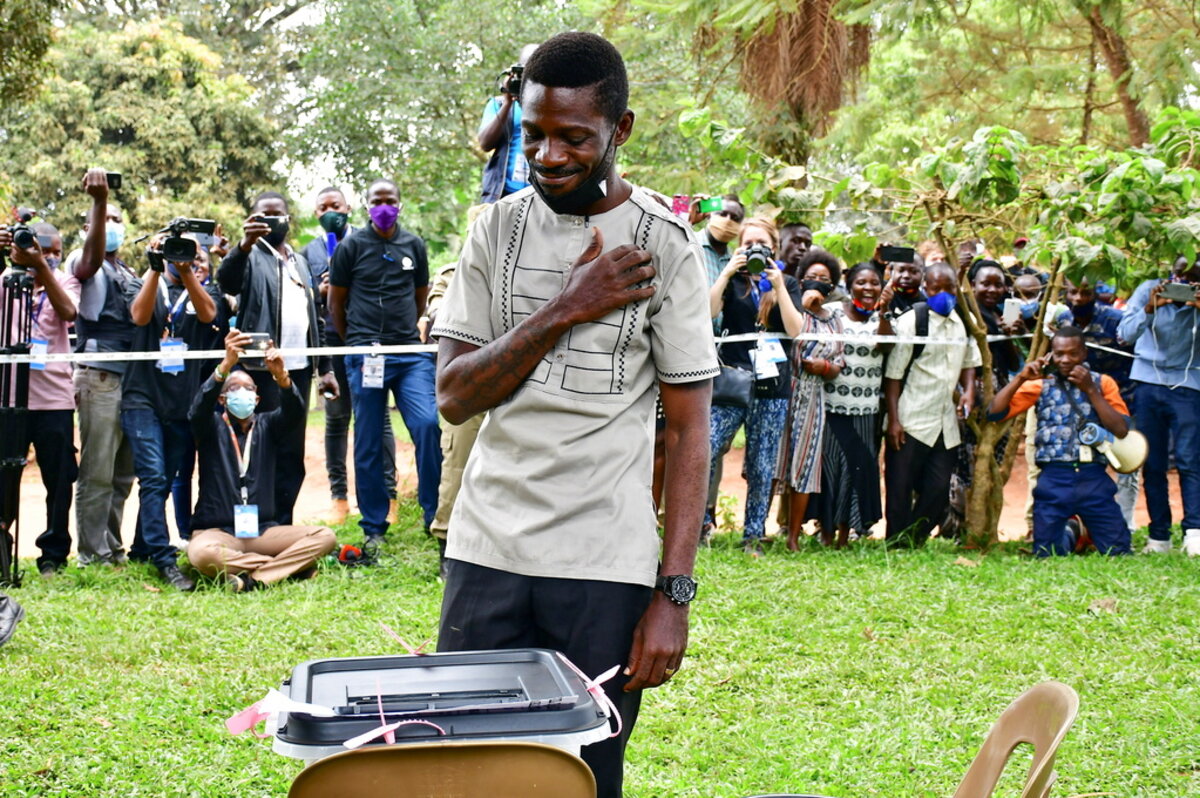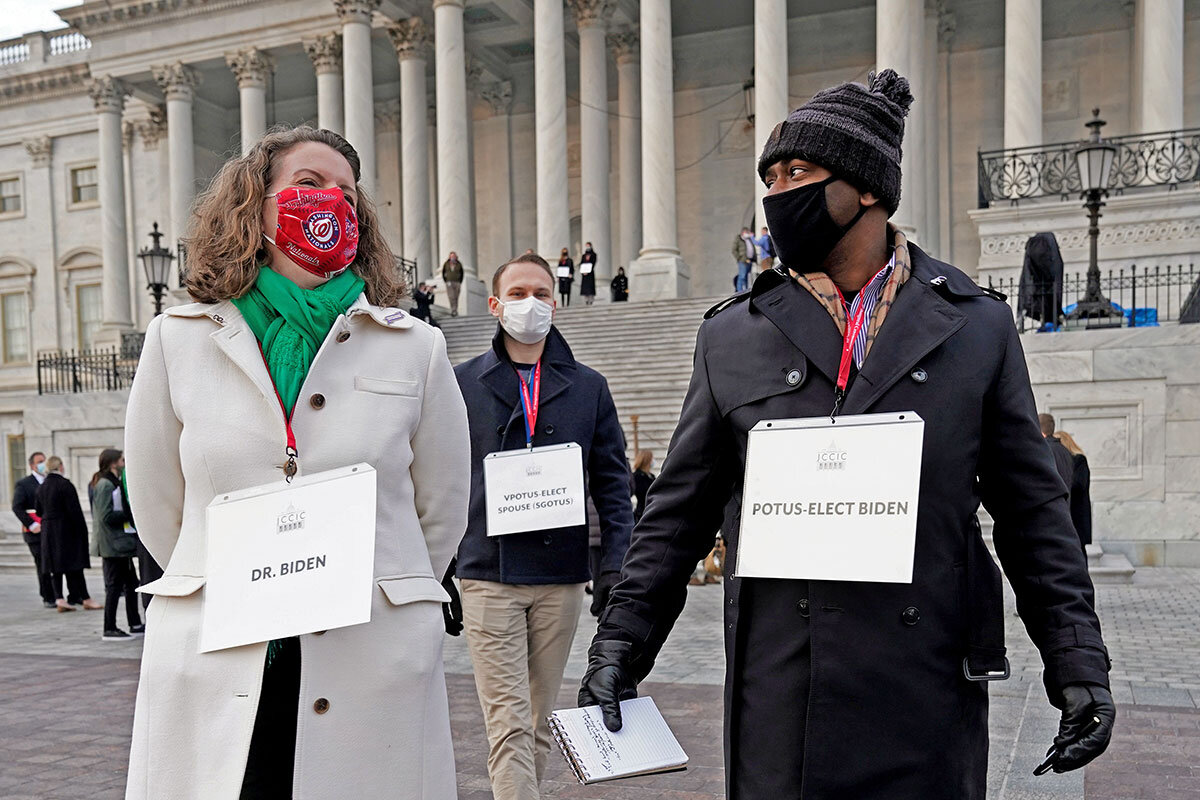At the root of the assault on the U.S. Capitol last week was a false claim of election victory. Disavowal of this lie by Republican leaders may be a crucial way to begin dousing mob anger.
Monitor Daily Podcast
- Follow us:
- Apple Podcasts
- Spotify
- RSS Feed
- Download
 Noelle Swan
Noelle Swan
There are many morals to the coronavirus story. How much we value face-to-face interaction with each other is most certainly one. But for me, one of the biggest takeaways has been finding new life for the old adage “where there’s a will there’s a way.”
So much of what happened in 2020 seemed impossible just months before. Flights were grounded. Businesses shuttered. Conferences, weddings, major international summits – all canceled. The closures were devastating for economies and our collective psyche. But in a way, they were also liberating. Lockdowns shattered the illusion that society, institutions, and “the way things are” are fixed entities incapable of radical change.
That liberation sparked hopes in climate circles that change is possible. It had been a long-accepted fact that millions of workers needed to slog through commuter traffic to work together in the same space. Executives simply had to fly around the world to put in face time at meetings. The associated emissions were the cost of doing business in a globally interconnected world.
The plunge in global emissions during the height of lockdowns last spring was but a blip in the grand scheme of greenhouse gas pollution. But it became a powerful symbol for the idea that we get to decide what kind of a world we want to live in. The pandemic has taken many things from us, but perhaps that lesson is its greatest gift.
The Monitor is looking for stories of climate action, adaptation, and resilience. Send us your comments and tips. Email me at swann@csmonitor.com.











